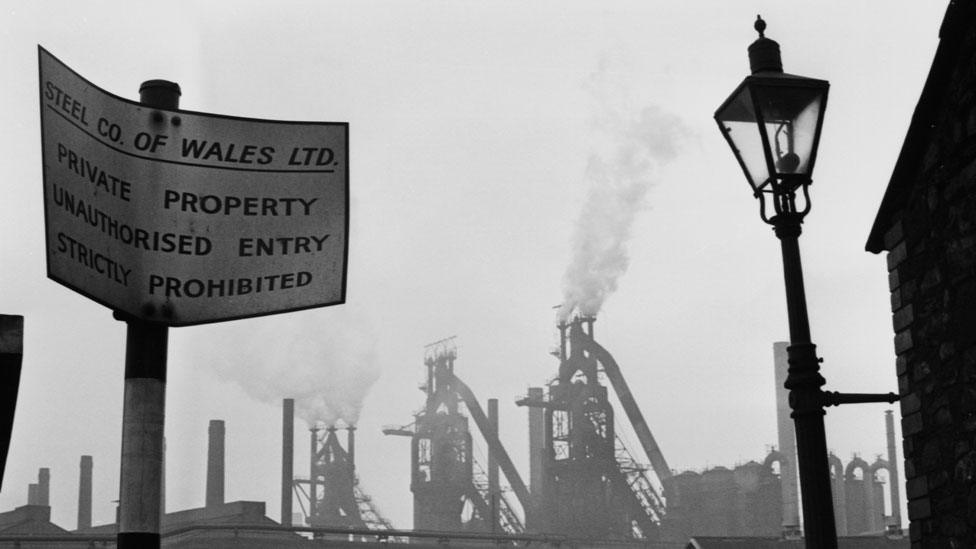Circuit of Wales: Why Ebbw Vale prayed for a race track
- Published
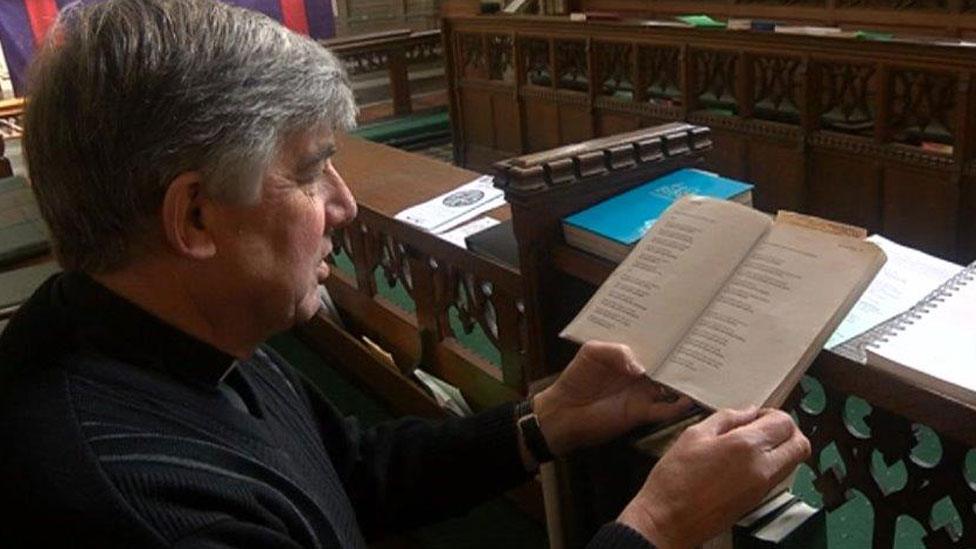
Reverend Geoff Waggett has been praying for a race track.
The deliverance of the £357m motorsport project has been in his prayers every day for months - and not just because his wife is a F1 fan and self-confessed "petrol head".
The vicar at Christ Church in Ebbw Vale said: "When I first heard about it, I perceived it as something that would give tremendous hope and purpose to a valley where so many people because of their circumstances have lost hope in many senses," he says.
"It's got to be the biggest socio-economic boost to this area for 50 or 60 years. What else can a church minister do but support it very fully?"
After Wednesday night's news that the Welsh Government could not underwrite the project, Mr Waggett said there was a "deep anger and frustration" and people felt "helpless" and let down.
That frustration lies in the economic difficulties the community still finds itself in.
Despite huge efforts and initiatives Ebbw Vale has never really recovered from the decline of its steel industry, which dated back 200 years.
In the post war era, the rolling mill at Ebbw Vale was the biggest of its kind in Europe, producing 600,000 tonnes a year. At its height, 14,000 people worked there.

STEELTOWN - FROM BOOM TO BUST
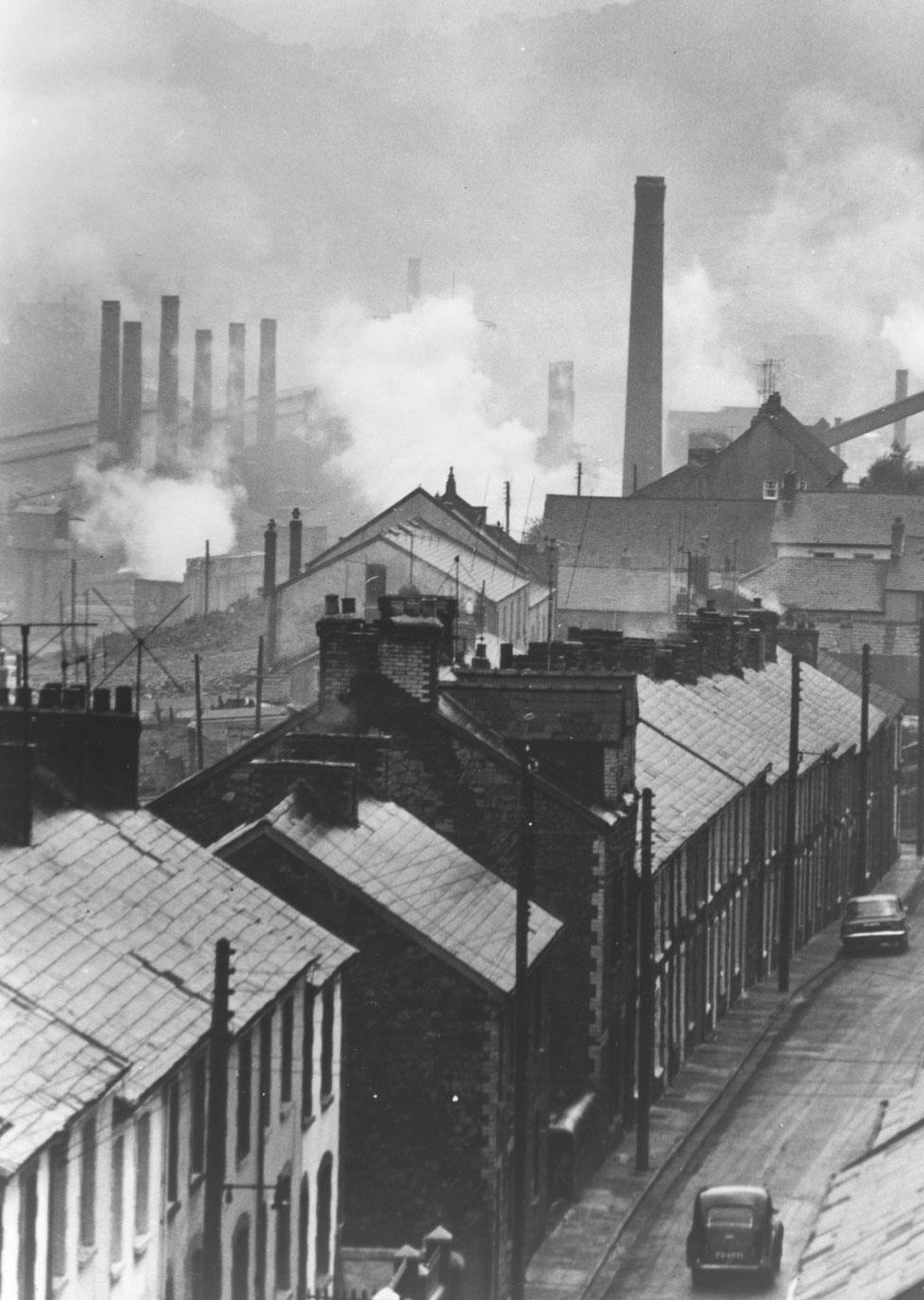
In the mid 1960s, Ebbw Vale employed more than 14,000 steelworkers
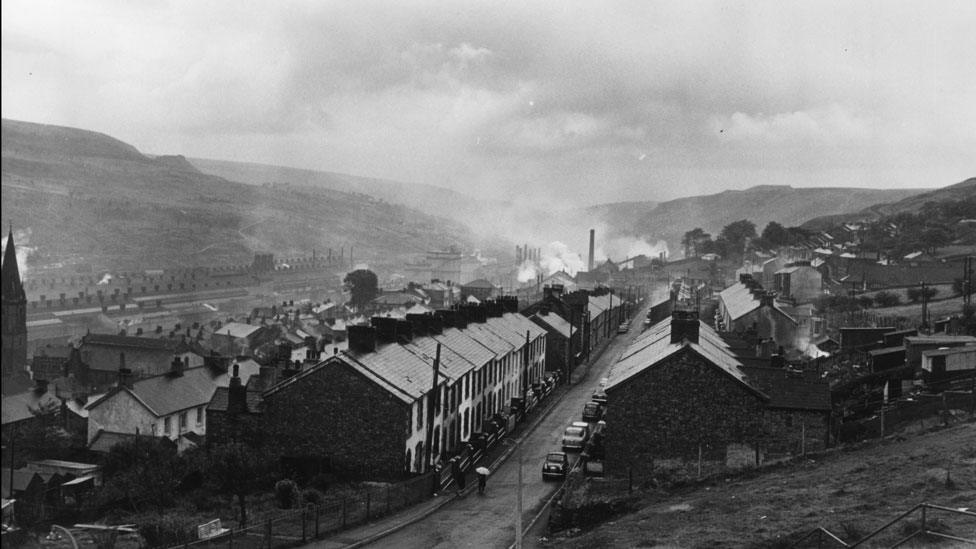
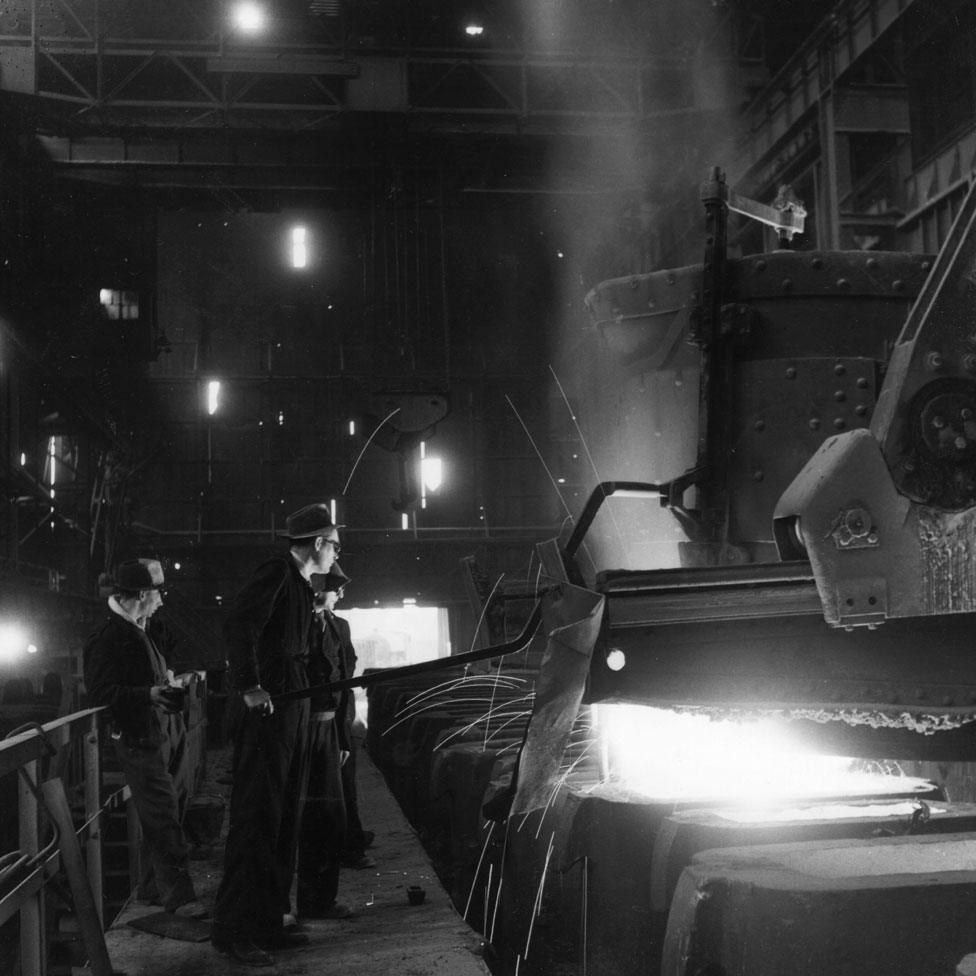
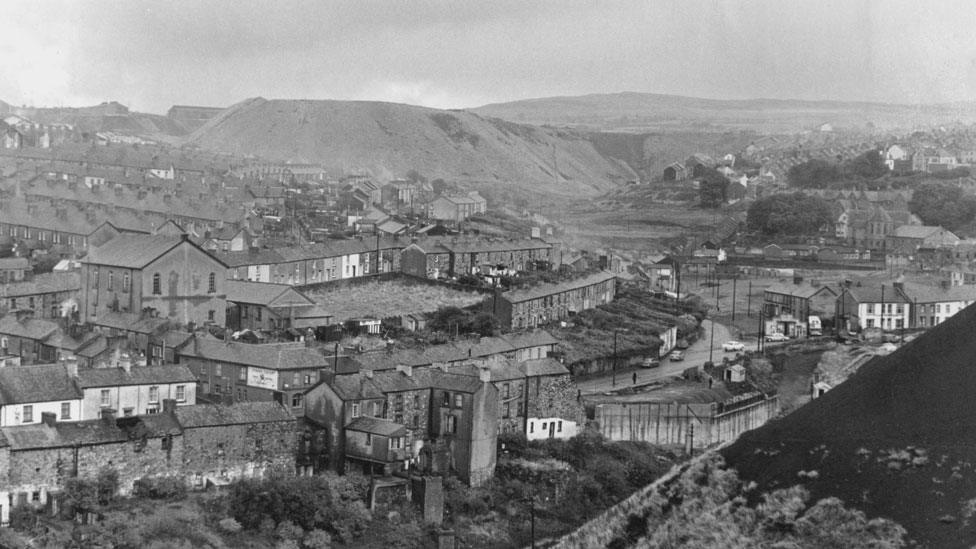
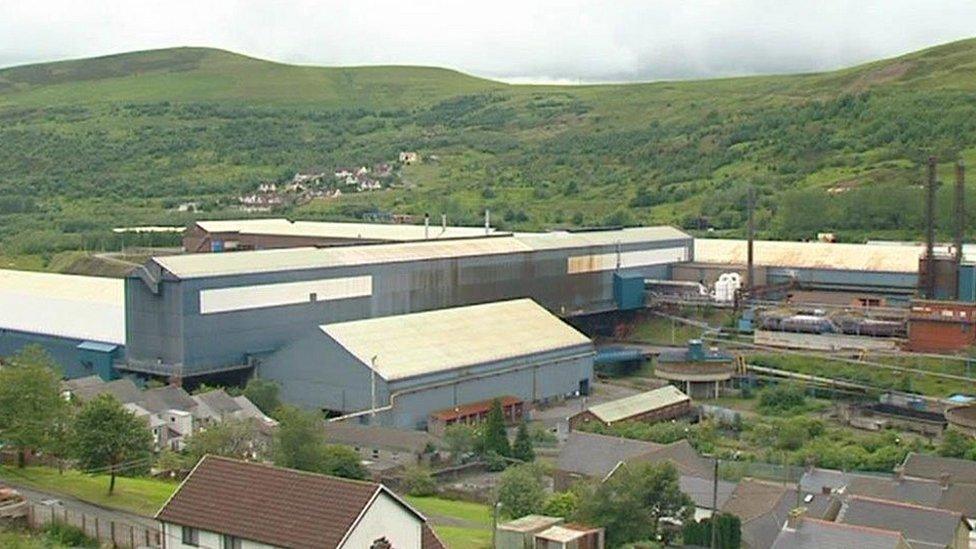
The steelworks being demolished, changing the landscape of Ebbw Vale

The decline started in the late 1970s when the rolling mill closed. After it was demolished, the site was chosen to host the last of the National Garden Festivals in 1992 - a symbol of regeneration.
It is now a not very vibrant retail park.
All that remained was the tinplate works, which was closed by Corus in 2002 with 850 job losses.
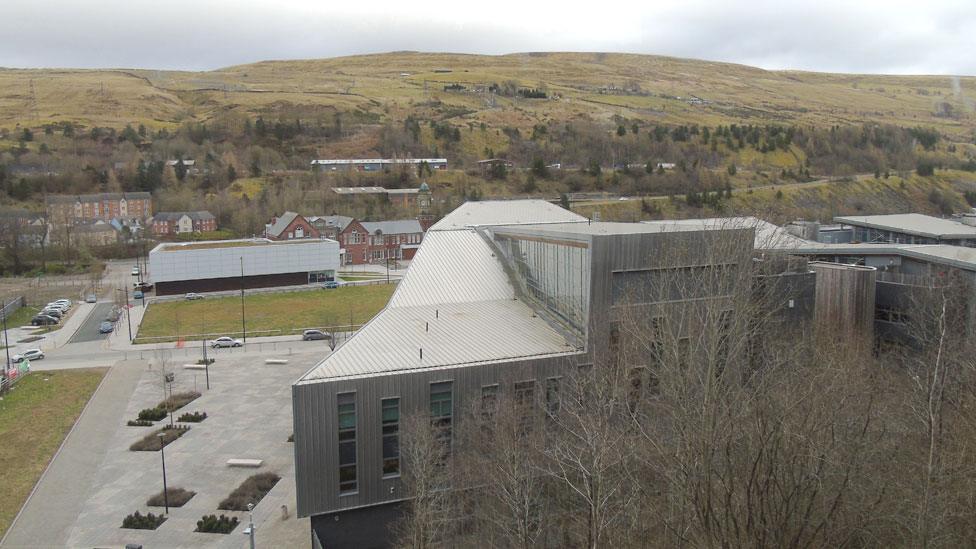
On the site of the old steelworks now is a huge college campus
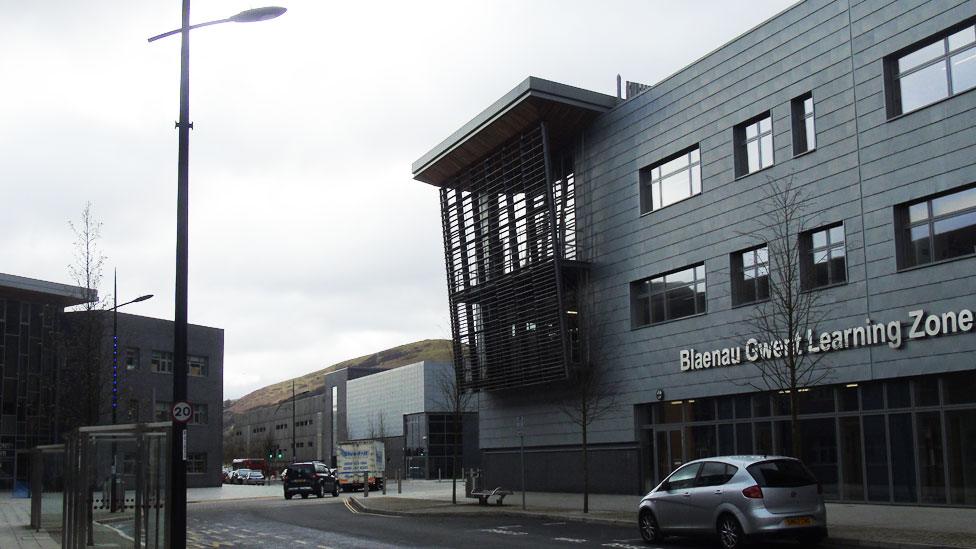
The college's A-level pass rate of 98.2% last year was higher than the Welsh average
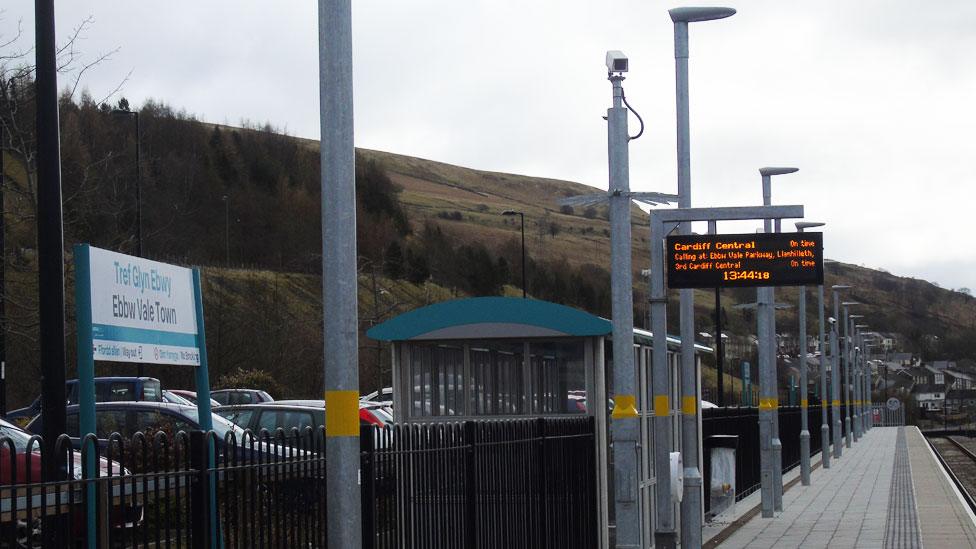
There is an hourly rail service from Cardiff to the new station, close to the college
Public money has been poured in from Welsh government, European Union and Blaenau Gwent Council.
The old steelworks was demolished and transformed by modern architecture in a £350m regeneration project called The Works.
In its place is a campus of Coleg Gwent named the Blaenau Gwent Learning Zone - with 1,500 students - a leisure centre, environmentally-friendly housing and Gwent Archives.
Nearby, the new Ebbw Vale Town station opened last May and passenger trains are running for the first time in nearly half a century after a £30m investment. Cardiff is an hour away - although a direct link to the city of Newport may still depend on the proposed south Wales Metro.
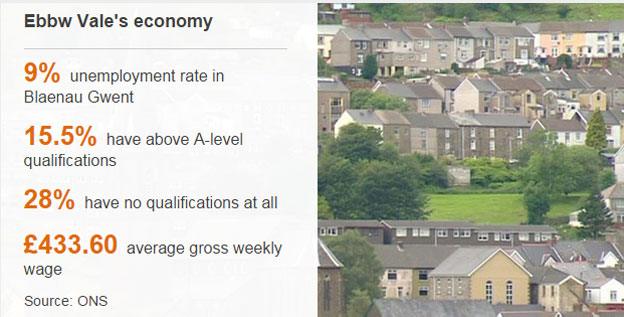
But Ebbw Vale's economy has been slow to match the vision and changing landscape.
The Blaenau Gwent unemployment rate is around 9% - higher than the Welsh average - and the latest figure we have for Ebbw Vale in 2011 showed 14% unemployed.
More than 26% of the population is not working and not available for work.
Only 15.5% in the town have qualifications above A-level and 28% have no qualifications at all.
For those working , average wages in the county are £433.60 (around £40 less than the Welsh average and nearly £100 less than the British average).
The first Welsh foodbank opened in Ebbw Vale in 2008 and the number of vouchers issued was 1,522 for the six months to September 2015 - up slightly on the same period the year before.
The number of jobs created in the Ebbw Vale enterprise zone was in single figures in 2014/15. A Welsh Government website , externalboasts how attractive Blaenau Gwent is to businesses saying the zone can benefit from the highest level of grant aid in the UK.
Until now, very little private sector money has been pumped into the area.
The announcement last month by sports car company TVR that it would create 150 jobs on the Ebbw Vale enterprise zone was made with confidence that the Circuit of Wales would be pushing ahead although the company has emphasised again it is not dependent on it.
The Welsh Government has been working hard to bring that sort of investment to the heads of the Valleys - beyond the M4 corridor.
While the Circuit's investment is centred around a race track, two new hotels are in the proposals to make the area more likely to be able to attract other visitors - those who love walking, heritage or adventure sports.
Local companies also hope to benefit.

BUILDING FOR THE FUTURE
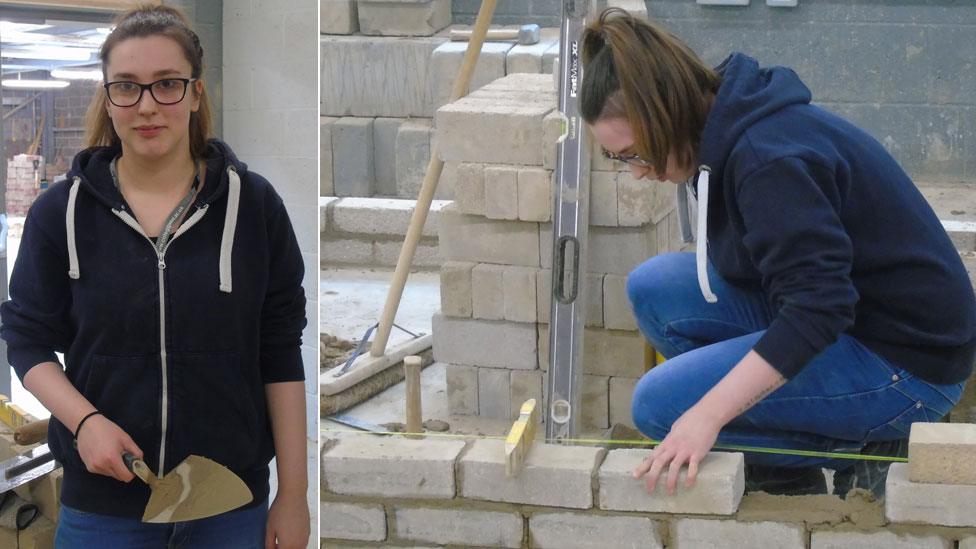
Alex Thomas
Alex Thomas, 18, has just got a job at a bricklayer. She started off on a beauty course but then switched to try a mix of carpentry, plastering and painting and decorating.
"I was doing nails but I hated it," she says of the beauty course. "Bricklaying took my interest; it was hard at first but I'm doing really well. I'm treated like one of the lads!"
Alex was in the middle of a City and Guilds course at Coleg Gwent in Ebbw Vale but will instead start work for contractors on long-term work dualling the nearby Heads of the Valleys road.
She will be back in college once a week to finish her qualification.
Alex, now living in Pontypool, is hoping the Circuit of Wales brings local employment. Her father worked as a coil packer in the steelworks for 18 months before it closed.
"It's important to have jobs around here," she said.
"Not many people my age can drive either, so there's not been much. It's such a small knit community, we need something here."
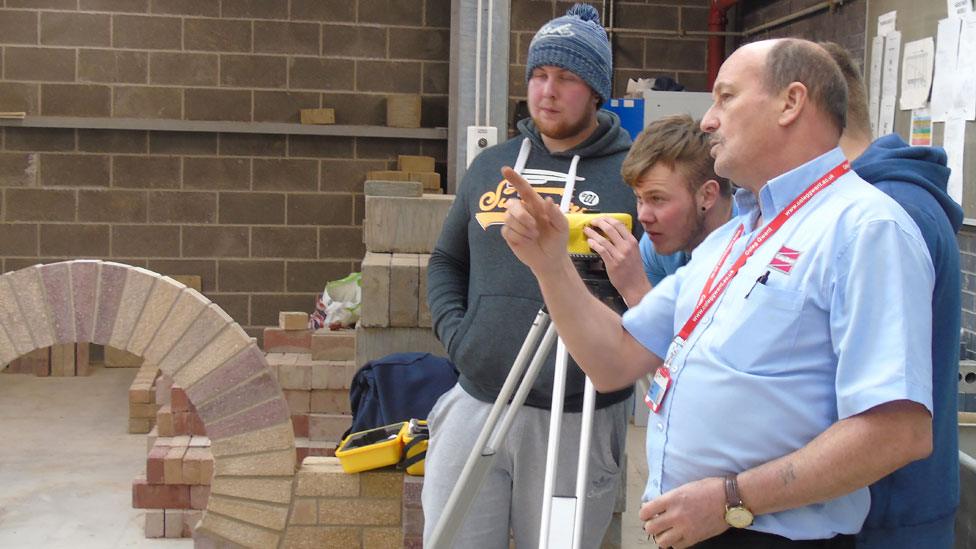
Cyril Williams with apprentices from a construction firm on a one-day a week NVQ course
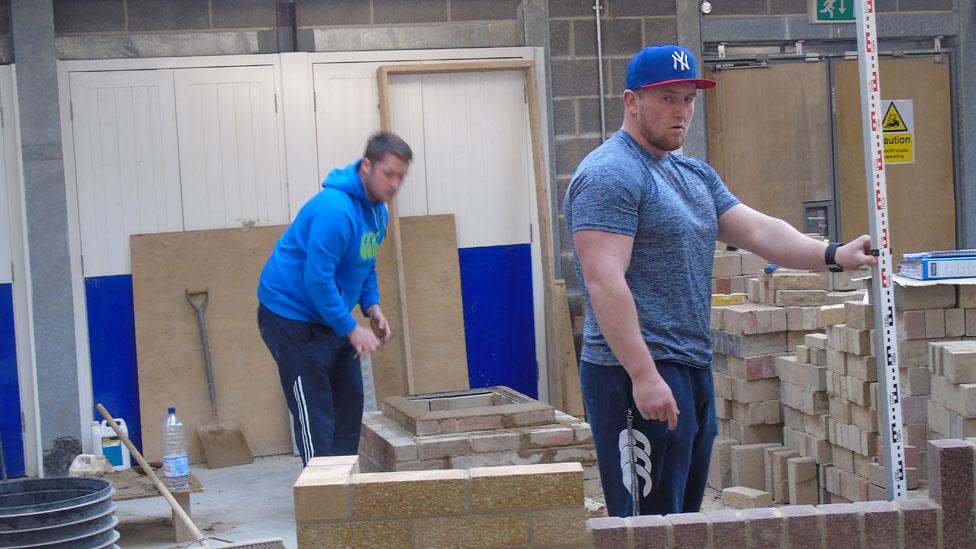
Her tutor Cyril Williams was one of the bricklayers who helped build the college, on the site of the old tinplate works. Alex was one of his best prospects and he has been hoping the Circuit will bring more opportunities for the 35 students on the bricklaying course.
"If [Circuit of Wales] is looking to employ local people than it will be a great for this area, not just for construction but we have hospitality industry too," he said.
"Work is not easy to come by and my apprentices have had to find work further afield, so we could do with a big boost."

Circuit of Wales came with huge claims about how it will help the economy.
The company behind it promises up to 70,000 visitors on a race day, 750,000 visitors a year and up to 6,000 jobs in the wider area in the long term.
Business Secretary Edwina Hart said it had been a difficult decision and she had been "fighting to the end" to find a solution after ministers last month were asked to provide a 100% guarantee.
"I'm sad that we couldn't do it but it's important to recognise that we wanted to support this project, we thought it would've been good," she said.
"But I am not entitled to take the risk with that type of public money and I don't think the public would expect me to take that risk."
Mr Waggett said he still has hope but his plea today is to those with the money.
"I have faith in the people behind this project, I have faith in the local community. One of the great difficulties is taking a massive vision forward," he said.
"It's going to have some element of risk, my plea to the investors is please have faith in this as we have faith in this."
- Published22 March 2016

- Published8 February 2016
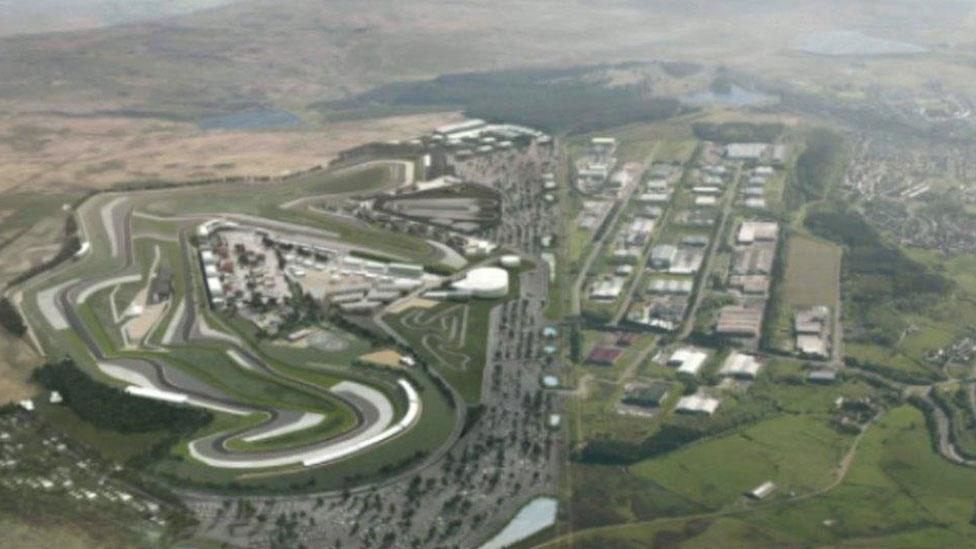
- Published8 February 2016
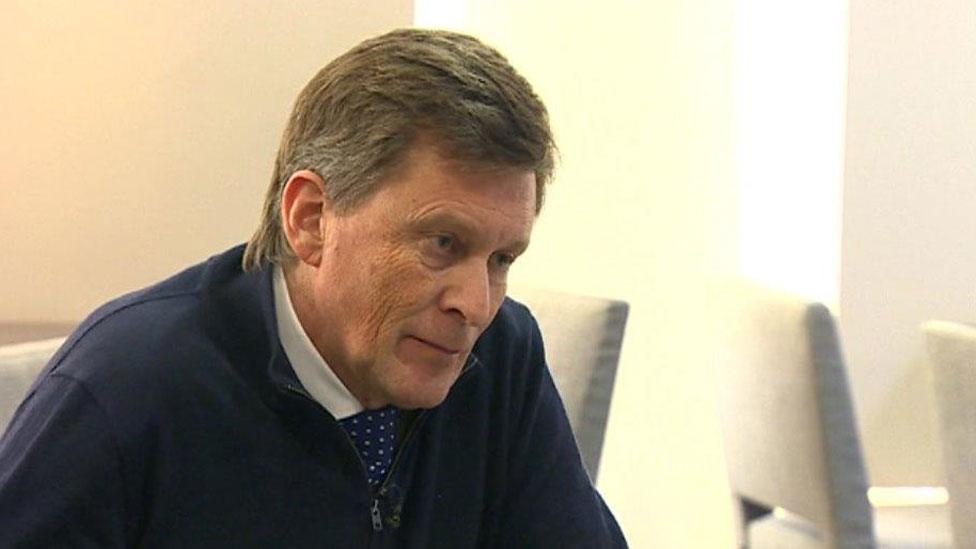
- Published14 December 2011
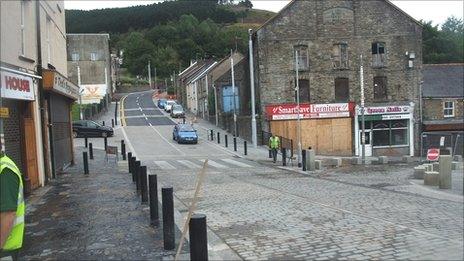
- Published18 January 2016
